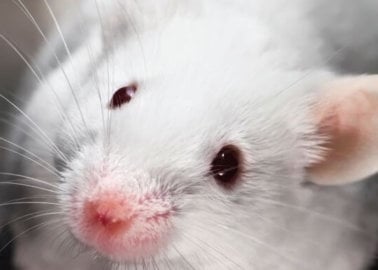Will Changes in Animal Laboratory Law Mean Changes for Animals in Laboratories?
More than 11 million animals are used in experiments in the European Union every year. In November 2008, the EU started a process of updating the law relating to animal experiments. Since then, the directive (known as Directive 2010/63/EU) has been “transposed” to the national law of each EU country, and on 1 January 2013, the new national laws came into force. Here’s what’s in the directive and what it mean for animals in laboratories.
A Mixed Picture
The new directive controls the circumstances under which animal experiments are allowed in the EU, the way in which they are authorised, the conditions in which animals are kept and the public availability of information about what’s being done. It was introduced to try to reduce the huge variations in these conditions among different countries in the EU. There are 27 countries in total, from tiny nations such as Malta to giants such as Germany. Some countries have had very few controls on animal experiments, and there’s no doubt that the new directive will substantially increase protection for animals in those countries. The main improvements in the law are the following:
- It bans the use of great apes (chimpanzees, bonobos, orang-utans and gorillas) in experiments, except under exceptional circumstances.
- It includes some animals – such as octopuses – who weren’t covered by the old law and so had no legal protection whatsoever.
- It ensures that experiments can’t be carried out without advance approval from a government body and that the people who conduct them must have had some training.
- It introduces a requirement to ensure that some assessment of the potential harm to animals must be included in the approval process for experiments.
- It sets higher minimum standards for the supply of animals, laboratory housing and inspection of laboratories by officials.
- It places an obligation on countries to take action to encourage the development and use of alternative methods that either cause less suffering or don’t use animals at all.
These new restrictions will relieve some animal suffering and may prevent some of the most pointless and cruel experiments from taking place. The bad news, however, is that in most respects the directive falls short of the kinds of controls and standards that already exist in many European countries, including the UK, and so it will do nothing to relieve the suffering of animals in laboratories in those countries. The number of animals used in experiments is going up in the UK, and experiments that cause terrible suffering are still permitted here.
PETA is opposed to all testing on animals, but until we can achieve an end to animal experiments, we want to see the tightest possible restrictions on them. Currently, vast amounts of taxpayer money and resources are being spent on animal experiments that are conducted in secret, with little in the way of recourse for review or accountability by the public. You can help animals in UK labs by taking action here.



